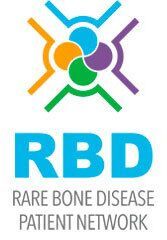
In a significant development for medical research, The University of Birmingham has announced the establishment of a new £12 million research centre dedicated to enhancing the efficiency of clinical trials for rare diseases. This initiative couldn't come at a more critical time, as over 300 million people worldwide grapple with rare diseases, often facing significant barriers in accessing effective treatments due to the complex nature of conducting specialized clinical trials.
Bridging Gaps in Rare Disease Research
Clinical trials for rare diseases are notoriously difficult, plagued by fragmented research efforts and a lack of access to specialized facilities and expert regulatory advice. The newly founded LifeArc Centre for Acceleration of Rare Disease Trials aims to change this narrative by fostering a collaborative environment where resources and expertise are shared for the greater good.
A Collaborative Effort
Under the coordination of Professor David Jones, a Professor of Liver Immunology at Newcastle University, the centre brings together a consortium of top-tier institutions, including Newcastle University, Queen’s University Belfast, and the University of Birmingham. This partnership is poised to revolutionize how clinical trials are conducted by adopting a '4 nations' approach across the UK, focusing on patient-friendly models that streamline the process from trial recruitment to treatment delivery.
Empowering Patients and Streamlining Trials
One of the most innovative aspects of the centre is the creation of a rare disease trial recruitment portal, designed in partnership with patients. This initiative will not only facilitate easier enrollment and participation in trials but also accelerate the approval processes for new therapies, making them available sooner for those in dire need.
Professor Timothy Barrett, Director of the Centre for Rare Disease Studies at the University of Birmingham, expresses a robust ambition: to deliver more treatments to more people with rare diseases more quickly. This centre not only reflects Birmingham's commitment to its diverse community but also sets a precedent for expanding rare disease trial capacity nationwide.
Voices from the Community
The importance of this centre is underscored by personal stories from those directly affected by rare diseases. Kerry Leeson-Beevers, parent to a child with Alström Syndrome and CEO of Alström Syndrome UK, shares her poignant experience of the slow pace of treatment development, highlighting the urgent need for a more efficient and inclusive approach to healthcare delivery for rare conditions.
A Broader Impact
This centre is part of a larger initiative by LifeArc, a medical research charity, which has committed nearly £40 million over five years to establish similar centres focusing on rare respiratory, kidney, and mitochondrial diseases. Each centre is dedicated to addressing a specific unmet medical need, potentially paving the way for advancements in other areas of medicine as well.
Dr. Catriona Crombie, Head of Rare Disease at LifeArc, celebrates the launch of these centres as a landmark in medical research, anticipating significant advancements not only for rare diseases but also setting a blueprint for future medical research across various conditions.
Conclusion
The establishment of the LifeArc Centre for Acceleration of Rare Disease Trials marks a hopeful step forward in the quest to bring more effective treatments to those living with rare diseases. Through collaboration, innovation, and a deep commitment to patient-centered approaches, it holds the promise of transforming the landscape of rare disease trials and accelerating medical progress.
This presents an excellent opportunity for community advocacy by raising awareness and educating the centre about CLA research.










